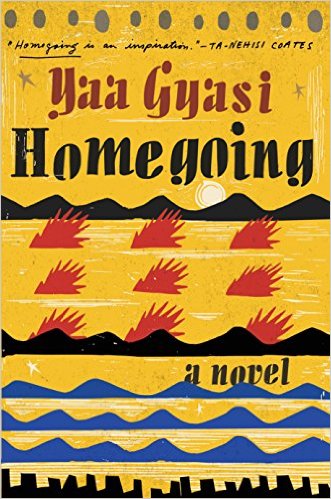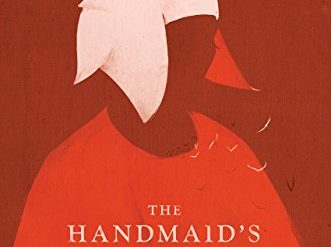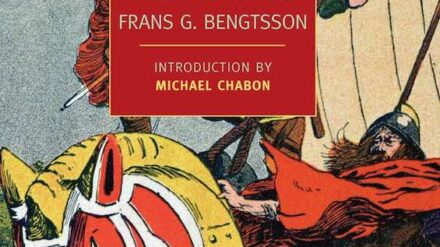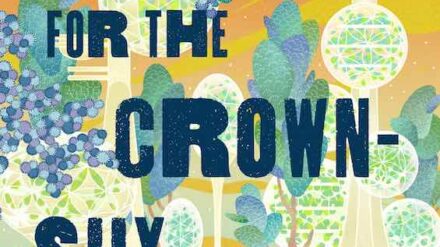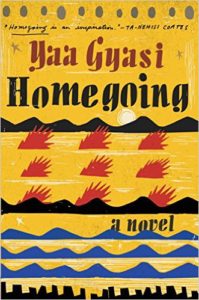
Yaa Gyasi’s extraordinary debut novel, Homegoing, traces the story of a Ghanaian family over more than two centuries through the lives of two branches of its descendants, one in Ghana, the other in the United States. It’s a worthy successor to Roots, the bestselling book that opened eyes in the United States to the complexity of African-Americans’ heritage. The book opens in the mid-eighteenth century, when the slave trade was at its peak, follows the rollercoaster fortunes of the family through the turbulent years of the nineteenth and twentieth centuries, and concludes in present-day Ghana, where two descendants of the family have returned to explore the land of their ancestors — and the meaning of their lives. The tale in Homegoing parallels the story told in Alex Haley’s Roots over roughly the same period.
Estimated reading time: 6 minutes
Unforgettable characters
Gyasi has a marvelous way with words. In brief chapters, using the most economical language, she celebrates the lives of her characters in ways that will stay with readers for a long time to come. Beginning with Effia and Esi, the two half-sisters whose descendants people the novel, through the generations to follow, Gyasi spells out the legacy of slavery without resorting to stereotypes.
There is evil on every side: in the British who manage and profit from the slave trade; in the Asante and Fante warriors and traders who deliver their captives to the British; in the American slave-owners and their successors, who impose lynching and Jim Crow; and in the Northerners who sustain housing segregation and practice racism with only slightly less malice than their Southern counterparts. Yet the members of the family are far from blameless: all the stereotypical afflictions of Black America are to be found here, from the cruelty of recent Irish immigrants to the drug addiction and broken families, yet each of Gyasi’s characters, no matter how unexpected, is easy to believe.
This is a novel that meets the sensibilities of our time, when the passage of history has allowed us to gain perspective over the evil in our past. This is historical fiction at its best.
Homegoing by Yaa Gyasi (2016) 313 pages ★★★★★
A big step up from the original Roots
Forty years ago, in 1976, a 900-page book titled Roots: The Saga of an American Family was published to enormous acclaim. Its author, Alex Haley, was widely known for The Autobiography of Malcolm X, published in 1965. Roots won a Pulitzer Prize, a special citation in Letters for what was marketed as a novelization based on the actual history of Haley’s family.
Roots begins with the story of a man named Kunta Kinte, kidnapped in 1767 from his home in The Gambia at age 17 and sold into slavery. The tale ends two centuries later in the United States, when Kinte’s descendants — including Alex Haley — have achieved success with their hard-fought freedom.
Roots was quickly made into an epic television miniseries viewed by a total of 130 million people. Later, Haley and his book came under fire from several directions, charged with simply inventing his family history. He was also accused of plagiarism by several authors, and one of them prevailed in court. Critical treatments appeared in a devastating BBC documentary (banned by U.S. networks) and in numerous influential publications, including the Village Voice.
Every claim in Roots was false
In an article in the Voice, for example, one author wrote, “Virtually every genealogical claim in Haley’s story was false.” Though much of the criticism was doubtless grounded in racism or simple envy, even a close friend of Haley’s, Professor Henry Louis Gates of Harvard, concedes that it’s time to “speak candidly,” adding that “most of us feel it’s highly unlikely that Alex actually found the village from whence his ancestors came.” Despite all the controversy, the Pulitzer Jury refused to rescind the award to Haley.
Whatever else might be said of Alex Haley, he was a masterful storyteller. But so is Yaa Gyasi, and she has done us the favor of noting upfront that her book is a novel.
Other reviews of the novel
The New York Times ran not one but two reviews of Homegoing. The first, a brilliant essay by the African-American scholar Isabel Wilkerson, ran on the front page of the New York Times Book Review on June 12, 2016. A second review, by Times critic Michiko Kakutani, appeared in the daily paper two days later. Both reviewers found a lot to like in the novel.
Wilkerson’s review, which sprawled over three pages, referred to the book as “hypnotic” and as Gyasi’s “intimate rendering of the human heart battered by the forces of conquest and history.” She dwelled at length on the emotional power of the novel’s chapters in which “the villages of West Africa come alive.” However, Wilkerson took exception to what she saw as the stereotyping in the chapters set in the United States. “What might have happened had Africans stood together against Europeans?” she asked. It’s a good question. Sadly, history shows us that didn’t happen — although, as Gyasi’s novel makes clear, Asante warriors held out against the British in a series of wars stretching across the last three-quarters of the nineteenth century. In other words, Wilkerson was hardly the first to ask the question.
Kakutani finds the inspiration of Homegoing not just in Roots but also in Gabriel Garcia Marquez’s One Hundred Years of Solitude and Thomas Mann’s Buddenbrooks. To my mind, she was reaching to make a literary case that is hard to justify. Though Gyasi explore the mysticism that held sway in the villages of Ghana in centuries past (if not yet today), it’s difficult to find the magic in Homegoing. However, since both Garcia Marquez and Mann won the Nobel Prize in Literature, perhaps we can envision an equally bright future for Ms. Gyasi?
About the author
Yaa Gyasi, now 26, spent seven years researching and writing Homegoing, including two years at the Iowa Writers’ Workshop, where she was rewarded an M.F.A. She was born in Ghana, raised in Huntsville, Alabama, and now lives in Berkeley, California. According to TIME, she received a seven-figure advance for this novel, her first book.
For related reading
I’ve also reviewed Gyasi’s second novel, Transcendent Kingdom (Questions science cannot answer in this brilliant new novel).
This is one of the many Good books about racism and of the many Good books by Berkeley authors. It’s also one of 20 top books about Africa.
For a gripping, true-life account of the slave trade, see Barracoon: The Story of the Last “Black Cargo” by Zora Neale Hurston (The last living former slave tells his story).
You’ll find this book on my list of The decade’s top 10 historical novels, mysteries & thrillers, and science fiction.
If you enjoy reading history in fictional form, check out 20 most enlightening historical novels. And if you’re looking for exciting historical novels, check out Top 10 historical mysteries and thrillers.
You might also be interested in Top 10 great popular novels.
And you can always find my most popular reviews, and the most recent ones, on the Home Page.

